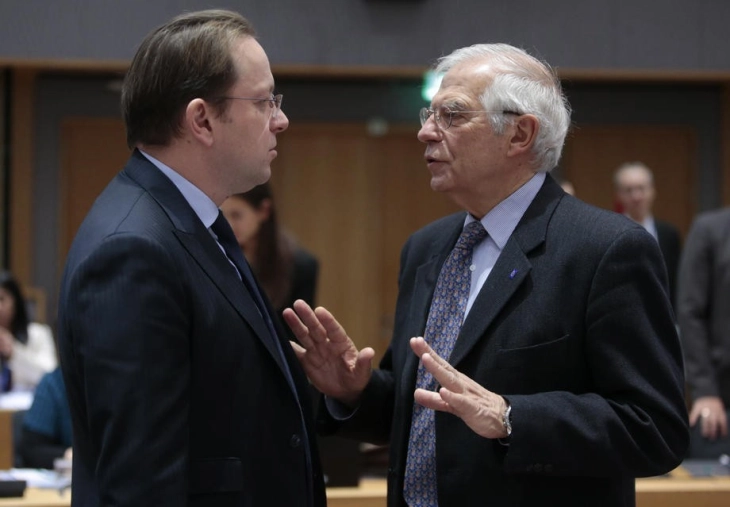Elections peaceful and democratic, process remains insufficiently regulated, say Borrell and Várhelyi in joint statement
- According to the preliminary findings and conclusions by the OSCE Office for Democratic Institutions and Human Rights (ODIHR), the second round of the presidential elections and parliamentary elections in North Macedonia took place in a peaceful and democratic atmosphere.
- Post By Ivan Kolekevski
- 16:58, 10 May, 2024

Skopje, 10 May 2024 (MIA) - According to the preliminary findings and conclusions by the OSCE Office for Democratic Institutions and Human Rights (ODIHR), the second round of the presidential elections and parliamentary elections in North Macedonia took place in a peaceful and democratic atmosphere. The elections were competitive and fundamental freedoms were respected, although the process remains insufficiently regulated, say EU High Representative/Vice-President Josep Borrell and European Commissioner for Neighborhood and Enlargement Olivér Várhelyi in a joint statement on Friday.
The EU congratulates President Siljanovska-Davkova on her election and looks forward to working with the new president, North Macedonia’s first woman Head of State.
"We encourage relevant political actors to work to form a parliament and a stable government. Both institutions need to work together to advance North Macedonia's EU path including by implementing key reforms particularly in the area of the rule of law and the fight against corruption, in the interests of all its citizens," reads the statement.
It adds that North Macedonia has made decisive steps in the EU accession process, and it will be important now to implement the outstanding commitments necessary to open the first cluster in the accession process.
"The EU and North Macedonia share a strong partnership. The country aligned fully to the EU common foreign and security policy, and we expect our cooperation to continue and further develop," reads the statement.
The EU notes that the joint international election observation mission from the ODIHR and OSCE, the European Parliament and the Parliamentary Assembly of the Council of Europe characterised both elections as competitive and respectful of fundamental freedoms. The election administration organised the elections efficiently. The media environment was generally free.
While the legal election framework laid the basis for democratic elections, some provisions did not comply with international standards, as regards on equal media access, accountability of state funding and access to legal redress. Recent amendments to the Electoral Code were introduced late and did not reflect ODIHR recommendations.
Once the International Election Observation Mission issues its final recommendations for future elections, the European Union expects all political actors, relevant institutions, and stakeholders to demonstrate their commitment to strengthening democracy by working together to implement those recommendations rapidly and well ahead of the next elections.
MIA file photo







